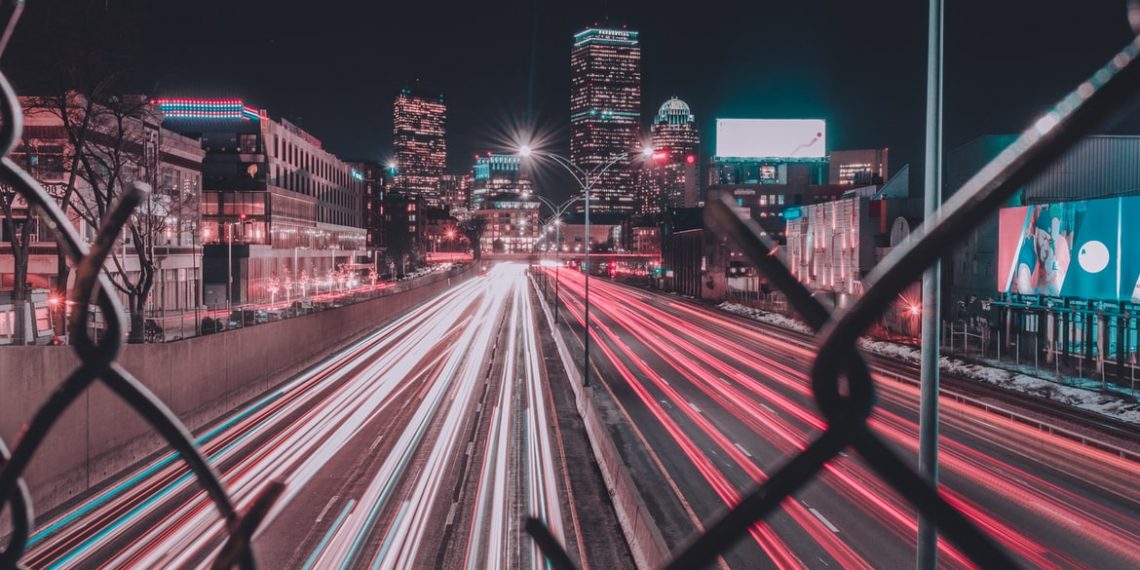Boston’s public transportation is pretty simple and comprehendible. The MBTA train system can get you around the city and the suburbs, and bus lines run where trains do not. But driving in Boston can be extremely difficult and stressful, with fellow Massachusetts drivers not making it any easier. If you have to rely on driving while in Boston, let’s talk about what to know and what to do.
Road Rules
Boston has similar driving rules to most major U.S. cities. But driving in urban environments is extra tough, especially for those without previous experience.
Let’s talk about some rules for driving to general that are essential to successfully driving in Boston:
Phones Off
Keep your phone away and don’t use it at all while driving. This should be avoided at all times, but no exceptions should be made ever in Boston. There are always people, cars, and other hazards getting in front of your moving vehicle when driving through Boston, so it’s essential to keep your eyes on the road at all times. And remember, you can get an $100 and up to 60 days of your license suspended if you get caught for this.
Car Renting
You have the right to rent a car when you turn 21, but it’s super expensive. When you reach 25, some restrictions are lifted and you can rent a car for a more reasonable price.
Seat Belts
Especially in a city, everyone should be wearing a seatbelt in the car. You never know when you have to slam on your breaks to let those at the crosswalk get to the other side of the road.
Headlights
They’ve got to come on 30 minutes after sunset or before sunrise. Remember, the sun sets in Boston early in the winter, around 4:30, so this happens a lot more than you’d think.
Drinking and Driving
Legally, your blood alcohol level is not allowed to be over 0.08% while driving. If you’re planning on drinking in Boston, assign a designated driver or leave the car at home and take a taxi.
Carpool Lanes
On many Boston highways, especially those en route to the city, there are specific carpool lanes. These are only for cars with at least 2 or 3 people (depends on the road). If you get caught violating the carpool lane, you can face a steep fine.
Tolls
Many highways in Boston are tolled, which helps maintain the infrastructure, especially through snowy – and expensive – Boston winters. Most highways take cash and E-Z Pass, so you’ll have multiple ways to pay the fees.
Traffic and Weather
Roads in Boston are packed all the time, especially during rush hour during the mornings and evenings on weekdays. Always check how long it’ll take to drive to your destination while planning, and give yourself extra time to account for possible traffic. Avoid driving during those rush hour times so you don’t have to sit in unnecessary traffic.
What are the extra traffic hours? There is a range, and it usually depends on the day and time of year, but it’s usually Monday to Friday, from around 8:30am to 9:30am, as people commute to work, to about 4:30pm to 5:30pm, as people head home. Traffic is worse going into Boston in the morning and into the suburbs in the evenings. Weekends can be especially busy too, as many people visit the city for work or leisure. Many GPSs account for traffic when calculating the destination time, but if yours doesn’t, make sure to give yourself lots of extra time to travel.
In a city like Boston with four distinct and intense seasons, the weather can drastically change traffic. Boston is packed in the summer, with tourists, vacationers, summer residents, and all the typical Bostonians. Roads can be busier in the summer as more people visit the city. Tourist attractions can be especially congested. Weather can dramatically impact traffic in the winter. When there’s snow, ice, or sleet, people tend to drive slower and more accidents tend to occur, which jams up the highways and causes traffic to build up. Driving is difficult in Boston, so remember there’s always the MBTA public transportation system too.
Parking
Perhaps the most difficult aspect of owning a car in Boston is parking. If you live in the city, you’ll probably be provided housing by your apartment or home. Additionally, many workplaces provide parking for employees. But this isn’t always the case, especially if you live outside of the city, and finding a good parking spot can be impossible. Parking is also expensive as well, so even if you find a spot, it’ll probably be quite pricey.
Here are the parking options in Boston:
Garages
There are tons of garages in Boston, catering to both short and long term parking needs. Short-term parking can be rather expensive, with certain garages charging upwards of $30 for an hour. Long-term parking can be more affordable – a great option for those who plan to be parking in Boston a lot.
Reservations
There are many services in Boston (most can be accessed through your phone with an app) that allow you to reserve a parking spot in a garage for just the time you need it. This can be cheaper than a typical garage, and you’ll be guaranteed your place when you arrive.
Meter
Perhaps the most stereotypical form of parking, there are meters available on the streets of Boston. Finding one can be tricky, with most spots never staying empty for longer than a few minutes. If you find a meter, be prepared to pay at least $5 per hour. Most allow you to pay with a credit card or phone app, as well as quarters or coins.
Valet
Many luxury restaurants and hotels in Boston offer a valet service, taking your car out of sight and out of mind. If you have the opportunity to use a valet, we recommend taking advantage of it.


